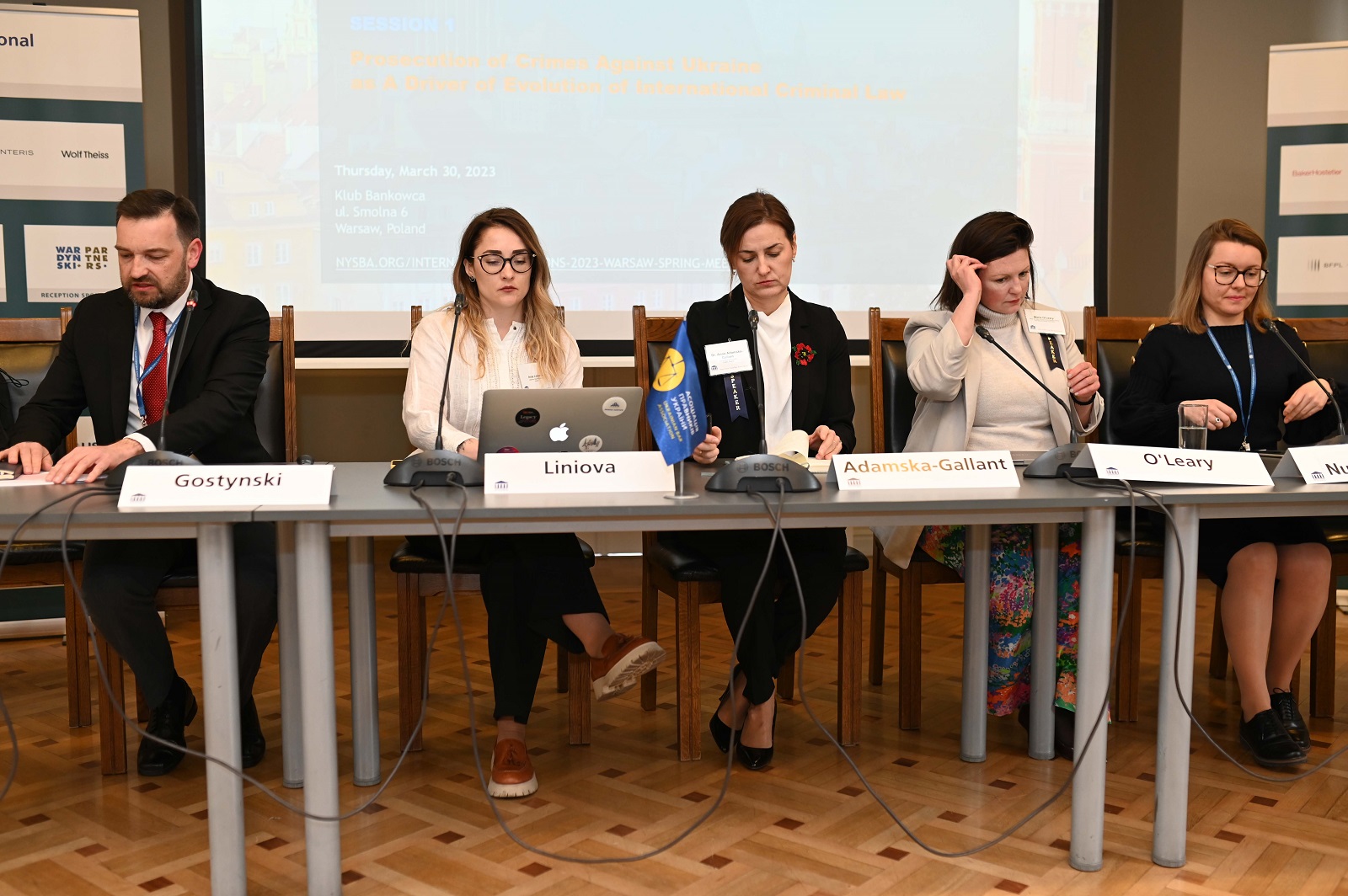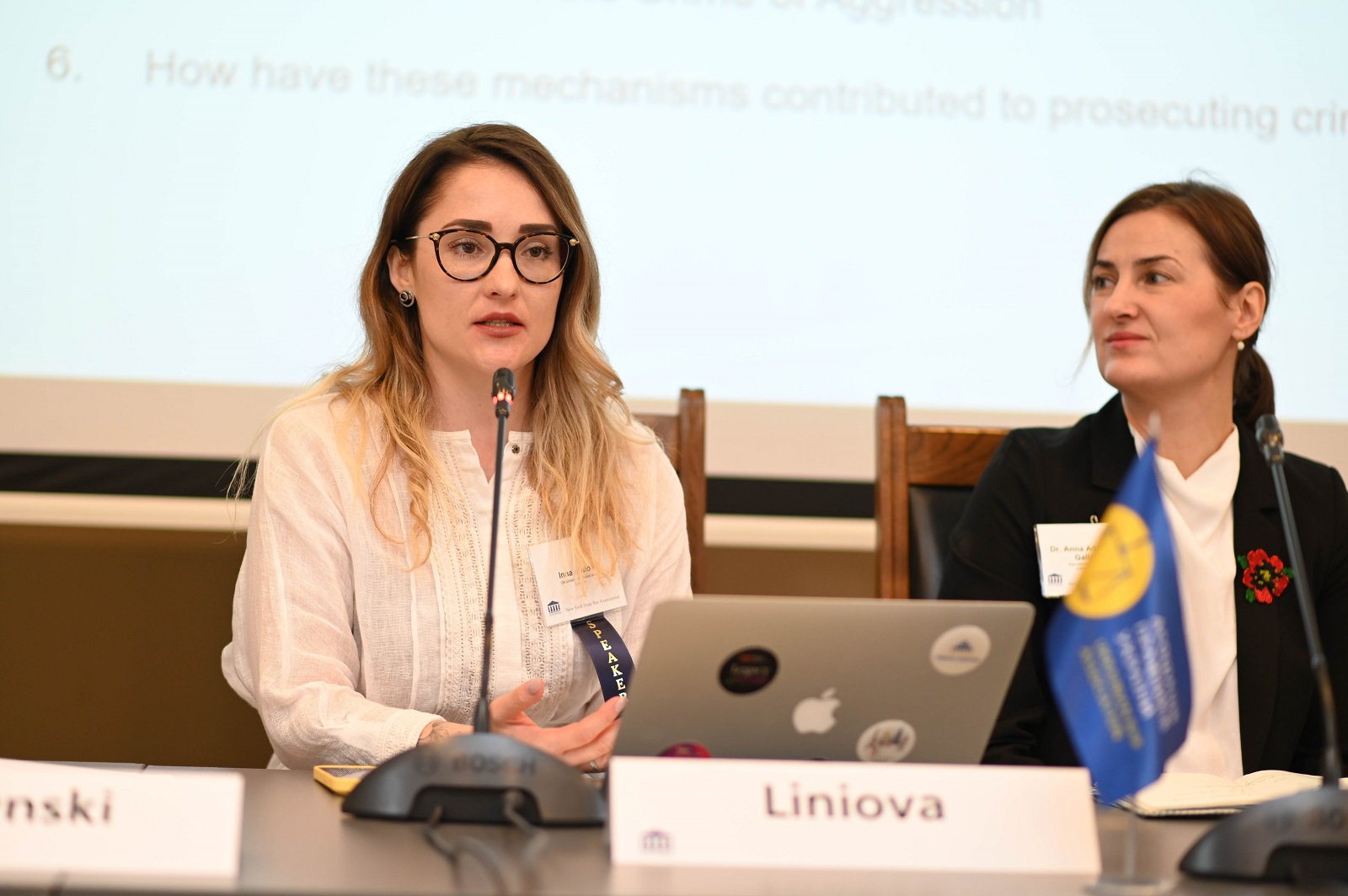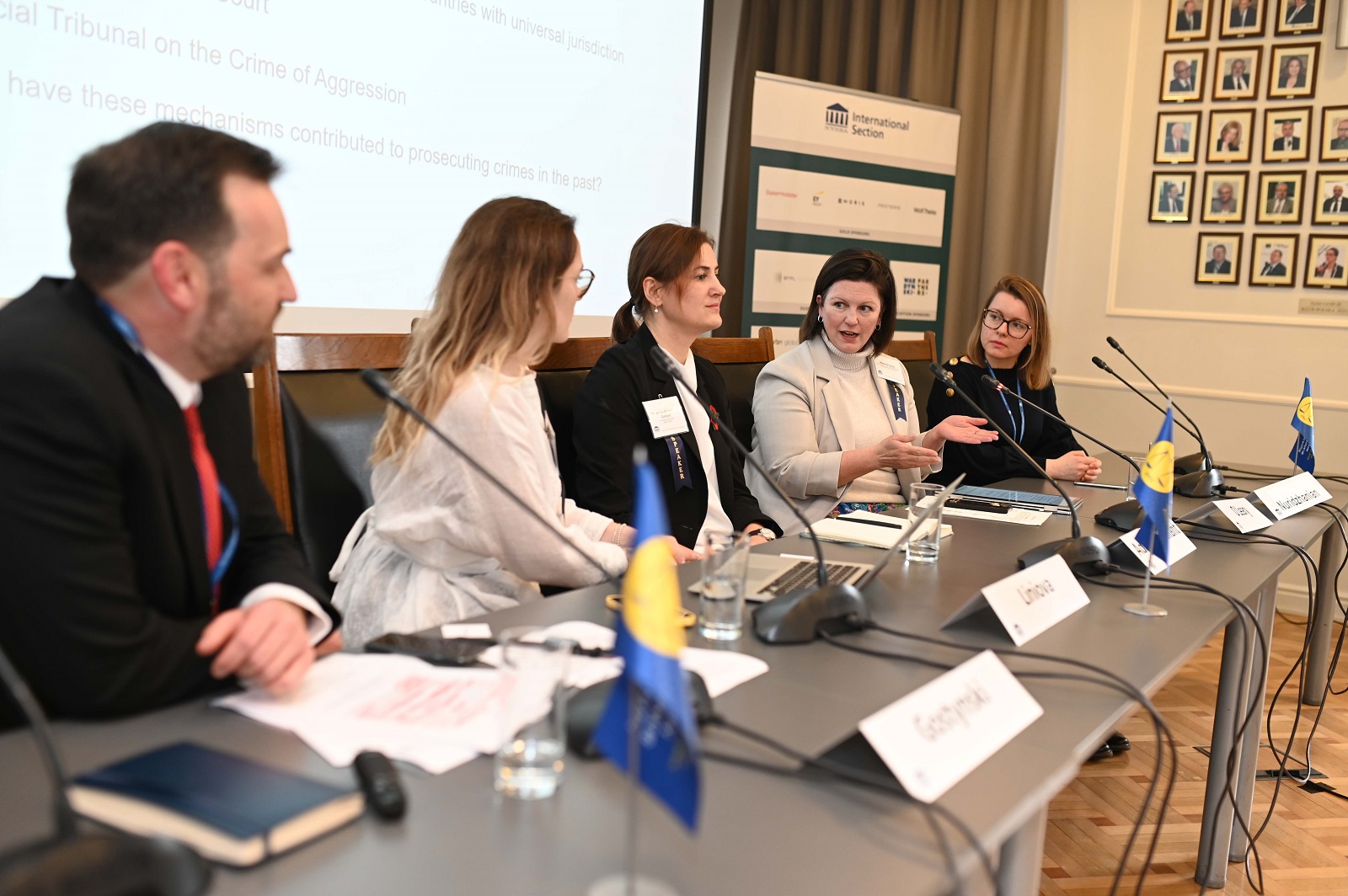At the Warsaw conference, the evolution of international criminal law under the influence of the war in Ukraine was discussed
The prosecution of Russia’s crimes against Ukraine as a driver of the evolution of international criminal law was a topic of the first session of the international conference "Ukraine: Where Are We Now? Legal Consequences A Year After Russia’s Full-Scale Attack on Ukraine", organized by the International Section of the New York State Bar Association (NYSBA) and its Polish and Ukrainian branches, jointly with the Ukrainian Bar Association and with the support of the USAID Program Justice for All, in Warsaw, Poland, on March 30, 2023.
The moderators of the session were Inna Liniova, Executive Director, UBA, and Szymon Gostyński, Gostyński & Partners, Kraków, Poland. Reports were made by:
- Dr. Anna Adamska-Gallant, Kancelaria Adwokacka, Lublin, Poland; International Key Expert, The EU-funded Project Pravo-Justice, Kyiv, Ukraine;
- Gaiane Nuridzhanian, National University of Kyiv-Mohyla Academy in Ukraine and UiT — The Arctic University of Norway, Tromsø, Norway;
- Marie O’Leary, Office of the Public Counsel for the Defense (OPCD), International Criminal Court (ICC).

The session was devoted to the discussion of the mechanisms of responsibility for the crimes committed by the Russian invaders in Ukraine and the evolution of international law as a consequence of the ongoing war in the heart of Europe.
The participants of the discussion agreed that the establishment of the Special International Tribunal for the crime of aggression against Ukraine is an urgent and absolute priority of the international security and law and order system. At the same time, the Tribunal will not duplicate, but complement the jurisdiction of the International Criminal Court. The creation of the Tribunal, like the warrant for the arrest of Russian President Vladimir Putin, brings the issue of personal responsibility of the Russian leader from the political to the purely legal level. Violations of international law must be held legally responsible, and no negotiations or agreements can change that.

According to the speakers of the session, the creation of the Tribunal will be the last element of the architecture of the international system of responsibility. All major groups of international crimes — war crimes, crimes against humanity, genocide, and the crime of aggression — will be subject to consideration by international judicial institutions.

The Ukrainian Bar Association emphasizes that the international legal community can contribute to the delivery of justice. Thus, the UBA published a public position on the establishment of the Special Tribunal. The New York State Bar Association, in its resolution, also called on the UN General Assembly to support the establishment of the Tribunal. Similar calls were made by the American Bar Association. According to the UBA, the more legal communities of the world support such a measure, the sooner the rule of law will be restored.
